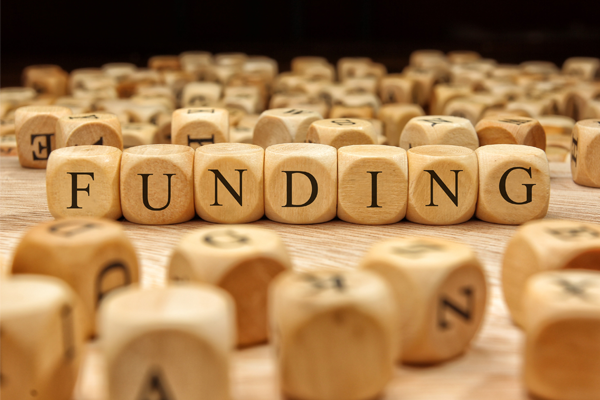For Graduate Students

The Winter Funding Round is now open.
Proposals are due on February 6, 2026.
Digital Humanities Summer Fellowship
Important Dates
Application Dates
Opens: January 5, 2026
Due: February 6, 2026
Funding Term
Summer 2026
Eligibility
UW doctoral students who have completed their master’s degrees by the deadline for application.
Graduate students who have already received digital humanities summer fellowships may apply again in subsequent years. Projects may be supported over multiple years, but fellows must apply for each summer of support separately.
Collaborative projects are strongly encouraged, and joint applications to this fellowship are welcome. These might take the form, for example, of two doctoral students working together, each with a full fellowship, or one faculty member and one doctoral student working together, each with a full fellowship.
Description
Digital Humanities Summer Fellowships support scholars pursuing innovative work in the digital humanities. Supported projects may include those that make intensive use of digital technologies (understood broadly to encompass a wide range of non-traditional digital techniques and media), in furtherance of humanities research, analysis, and publication. Supported projects can also include explorations of the cultural, societal, and historical implications of digital technologies.
This program welcomes applications from both newcomers and veterans in the field of digital humanities. All applicants are encouraged to schedule a consultation with Eric Johnson (ejred@uw.edu), who will lead the Simpson Center’s 2026 Digital Humanities Summer Fellowship program, for assistance in developing a feasible and competitive proposal.
Criteria
The review committee bases its award decisions predominately on the scholarly merit of the application, while also factoring in the level of preparation demonstrated by applicants toward successfully undertaking their projects.
Terms of Award
The fellowship carries a stipend of $7,500. The explicit intent of this support is to allow fellows to devote much of their work time during summer 2026 to their proposed projects. It is an expectation that fellows will not have significant competing work demands such as teaching during the month of July.
In addition, students are encouraged to request support of up to $3,500 total in three broad categories:
1) collaborators, contributors, and hourly support (for example, a fixed price agreement for website development and hourly support for graduate and undergraduate students)
2) digital tools (for example, hardware and software for purchase and licensing agreements) and training (online course fees, workshop costs, and, if necessary, travel to in-person educational opportunities)
3) research travel expenses (for example, giving a talk at a conference on the digital project).
Please consult with Julie Stoverink, Simpson Center Administrator (scfiscal@uw.edu) if you envision potential expenses not included in these categories. A budget template (included below) and a rationale for these expenses must be included with the proposal.
Note that projects do not necessarily have to be completed during the summer fellowship term.
Campus Meetings and Summer Residency
Award recipients are required to participate in person in all meetings of the summer fellowship cohort. During the summer fellowship period, cohort meetings will be held twice per week during the month of July. This fellowship is therefore not appropriate for those who are unable to meet on campus during July 2026.
In addition, two gatherings will be held on campus in spring and fall, as a way of bookending the fellowship term. Please note that tentative dates for those meetings have been set as follows:
Introductory Meeting: Friday, May 29, 2026
Project Showcase: Friday, October 23, 2026
Digital humanities projects stand to benefit from soliciting constructive input at every stage in their evolution. To that end, we strongly encourage all applicants to the Digital Humanities Summer Fellowship program to meet with Eric Johnson (ejred@uw.edu) prior to submitting their proposals. Topics of discussion may encompass research questions and methodologies; databases, sources, and other inputs; platform and technology choices; scope; assessment of achievable goals; and technology skills acquisition.
Once completed, applications should be submitted to the Application Form (the application form for the winter funding round will open on Monday, January 5). All proposal materials are to be uploaded in a single, bundled PDF, and the budget spreadsheet uploaded as a single Excel file.
Proposal Narrative. Limit 1,750 words (approximately 6 double-spaced pages). Proposal narratives should describe the project in language that is clear to non-specialists in their scholarly field. All narratives should address:
- Intellectual ambitions and objectives of the project.
- Methodologies engaged and reasons for using them.
- Project timeline (this should outline the longer-term vision for the project).
- Fellowship timeline (a detailed description of the work you plan to complete during the fellowship term).
- Preparation to undertake the project (for example, prior training in the tools and platforms described in the project plan). Please detail your level of competency and experience with digital tools and platforms cited in your proposal. If you do not have existing competency or experience with the proposed tools, please outline your plans for how you will develop sufficient competency.
- The sustainability of the project: presentation, dissemination, and preservation of the project.
- Pertinent intellectual property issues, with bearing on who will have rights and/or access to the knowledge/products generated by the project.
Bibliography. Limit 550 words. Select primary and secondary sources directly related to the project.
CV. Please limit to 5 pages.
Budget and Budget Rationale. Download the required budget spreadsheet. Complete it using the guidance included and submit it through our Application Form with your completed proposal. If you have questions about building your budget, contact Julie Stoverink at scfiscal@uw.edu.
Please contact Simpson Center Digital Humanities Lead, Eric Johnson (ejred@uw.edu), with any questions.